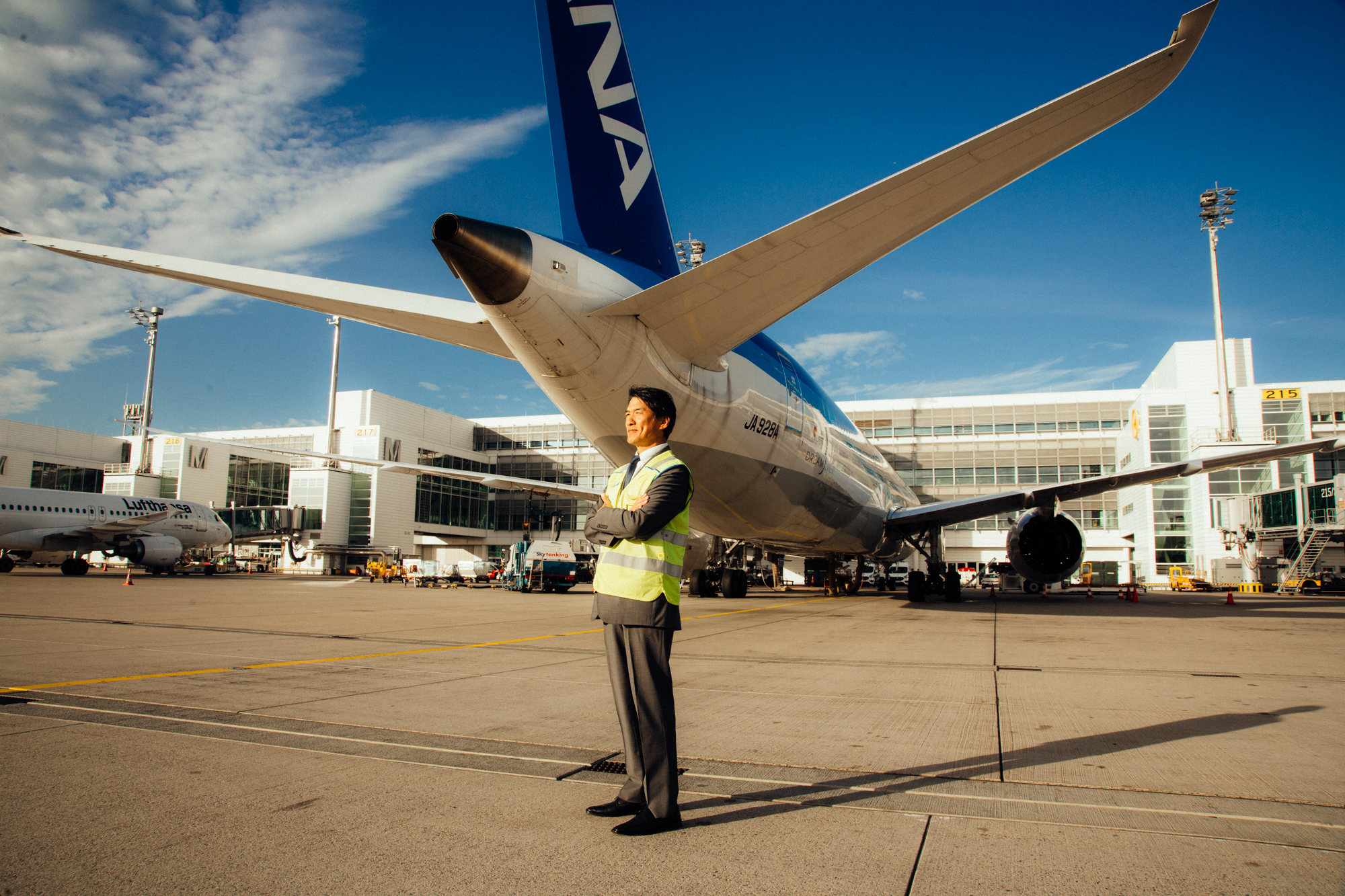The Japanese toy manufacturer EPOCH is present in many children’s rooms with brands like Sylvanian Families and Aquabeads and cooperates with well-known Japanese brands such as Nintendo. Many of the company’s products are timeless evergreens that have been on the market for over 30 years. EPOCH operates with a very sustainable strategy: only when a brand is well established, the next product line does come onto the market. J-BIG spoke with Germany Managing Director Willi Schiffner of EPOCH Traumwiesen GmbH about the history, challenges and philosophy of the company.
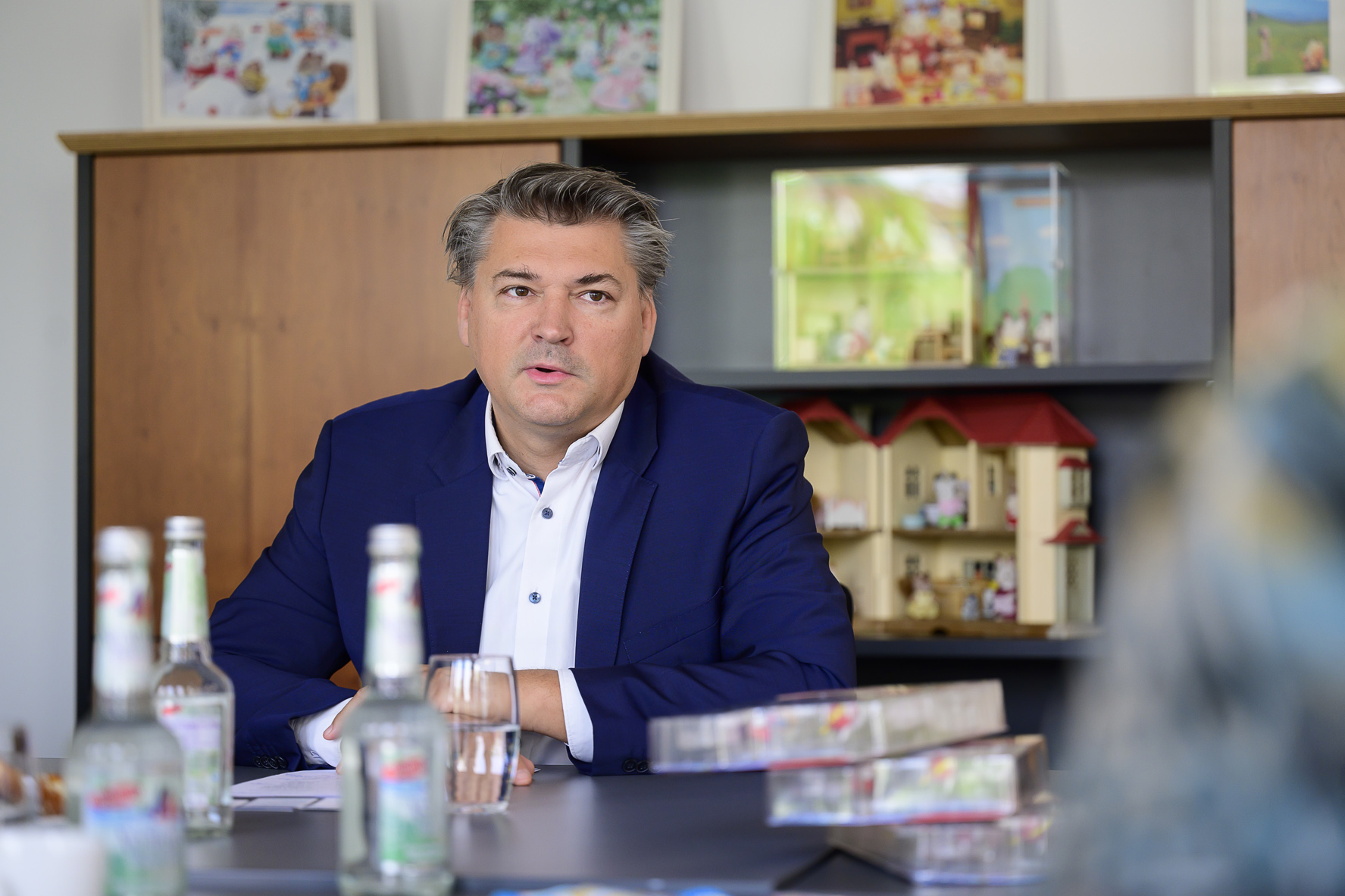
J-BIG: How did it all start with EPOCH?
Willi Schiffner: EPOCH has been around for 64 years; a respectable age for a toy company. The company was founded in Tokyo in 1958 by the father of the current CEO, Taketora Maeda. The first product was a baseball game – and it was so successful, partly because baseball is very popular in Japan, that other action games for children followed.
J-BIG: What are the products that shape EPOCH today?
Willi Schiffner: In Japan, for example, we are the largest jigsaw puzzle producer and the market leader in board games, similar to Ravensburger here in Germany. We have almost 30 percent market share in this segment. On the one hand, we develop our own products, but on the other hand we also have many strong licences in our portfolio, for example games based on “Demon Slayer”. Our product portfolio outside of Japan, i.e. in Germany, Europe and the USA, is currently built on three pillars: Sylvanian Families, Aquabeads and “Super Mario” board games in license cooperation with Nintendo. Unlike other toy companies that launch maybe five new brands a year, we take two or three years before we launch another brand. In Germany, we are now in our eleventh year and have launched our third brand. It wasn’t until our core brand Sylvanian Families was well received in the market that we started to implement the next one.
“In the early 80s, we actually made our first foray into video games.”
J-BIG: Has EPOCH always made tactile toys? Apparently there used to be a video game console as well …
Willi Schiffner: In the early 80s, we actually made our first foray into video games. Later, in the early 90s, there was a handheld game called Barcode Battler, where you could scan barcodes and collect points. But there were different vendors that we competed with in those times and our focus was not strong enough. In 1991, our first cooperation with Nintendo came about for the use of the Super Mario characters – and we then preferred to stay focused on analogue toys.
J-BIG: Did the cooperation with Nintendo also arise from the fact that EPOCH was active in the video game sector for a while?
Willi Schiffner: The connection rather stems from the fact that both companies were and are originally Japanese toy manufacturers, only that one company has developed completely into the video game sector and the other has remained more in the classic game sector. And I know that there are personal connections between the two families Yamauchi, the entrepreneurial family behind Nintendo, and Maeda. We have been marketing Nintendo licensed products for 30 years now, mainly in Japan, and for about two years internationally.
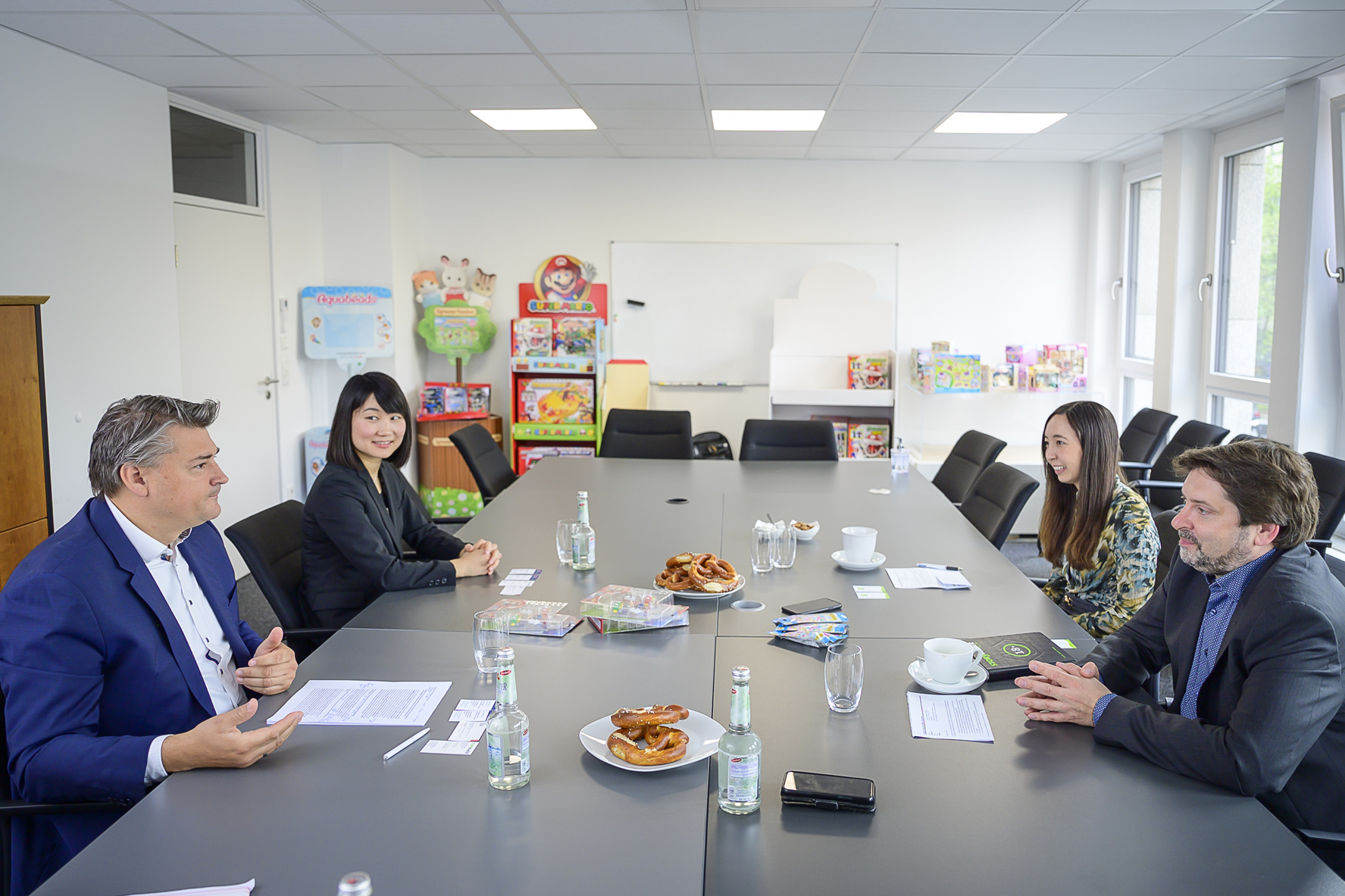
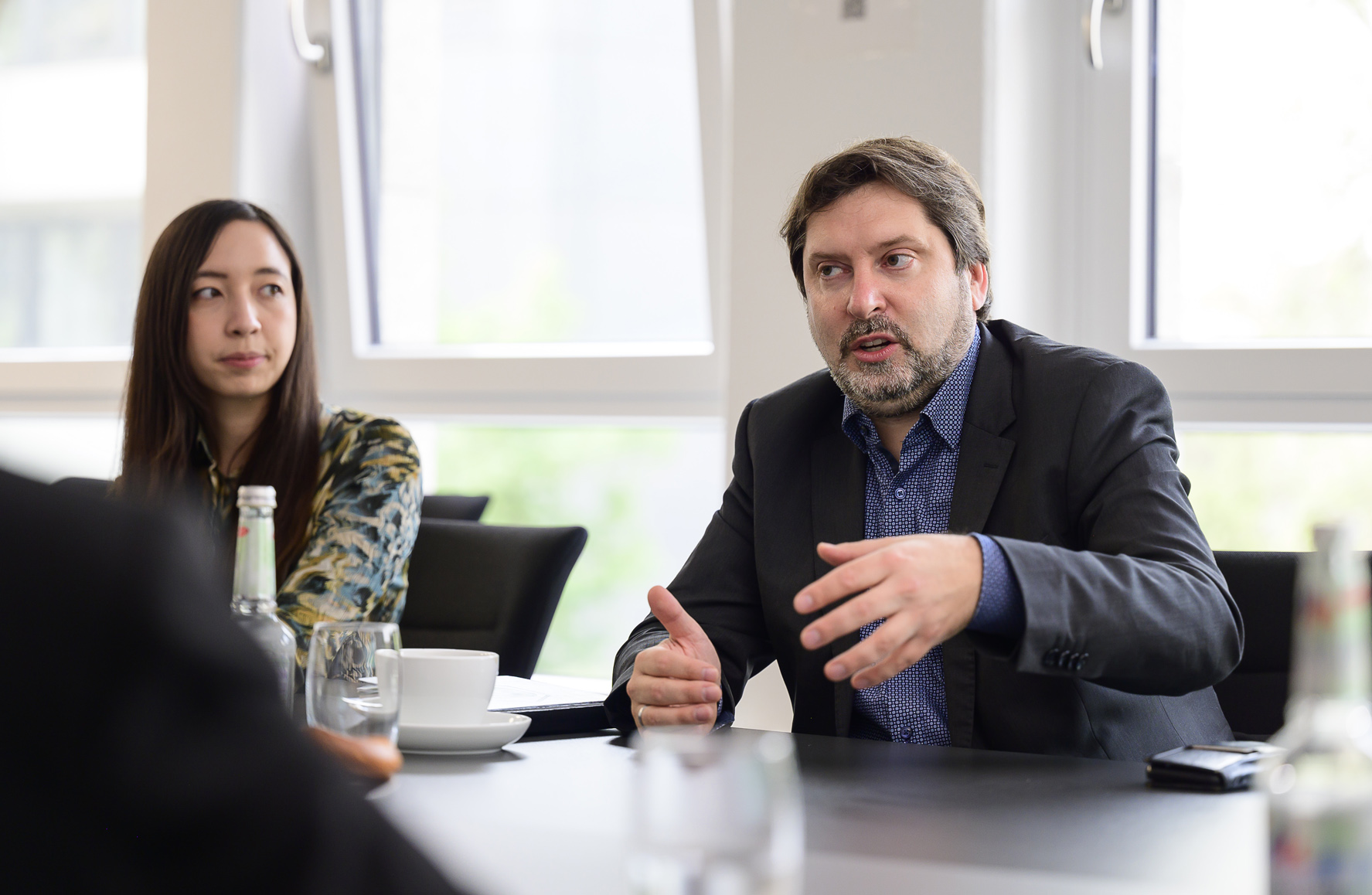
J-BIG: Back to the company history of EPOCH. We stopped in the 80s and 90s …
Willi Schiffner: Yes, so our video game excursions were not as successful as those of other companies. 1985 was the game-changer year for EPOCH. We developed Sylvanian Families and the product was a huge success. Interestingly, that’s also the year Super Mario came out. So we can celebrate our birthday together with Super Mario – we have something else in common with Nintendo.
J-BIG: Tell us more about Sylvanian Families.
Willi Schiffner: Sylvanian Families are animal characters that behave like humans. Children play out their lives with them: The animal dolls go to school, they have children’s rooms, kitchens and bathrooms and there are accessories such as furniture sets. There is now a very large product portfolio and several dozen families. It’s basically the modern doll’s house that we developed in the 1980s. We won the “UK Toy of the Year” award in the Great Britain three times in a row with the product line – no toy company had managed that before.
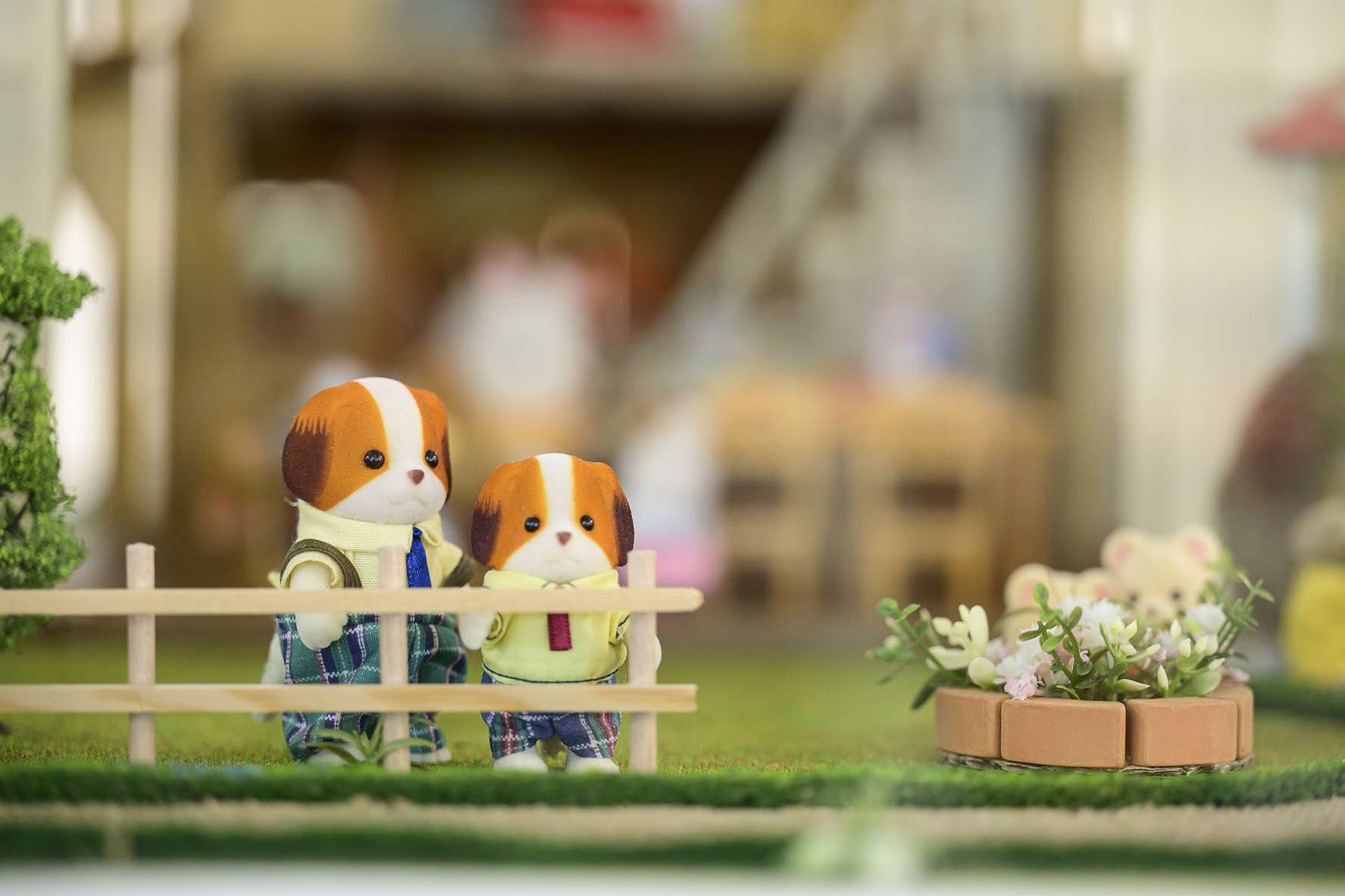
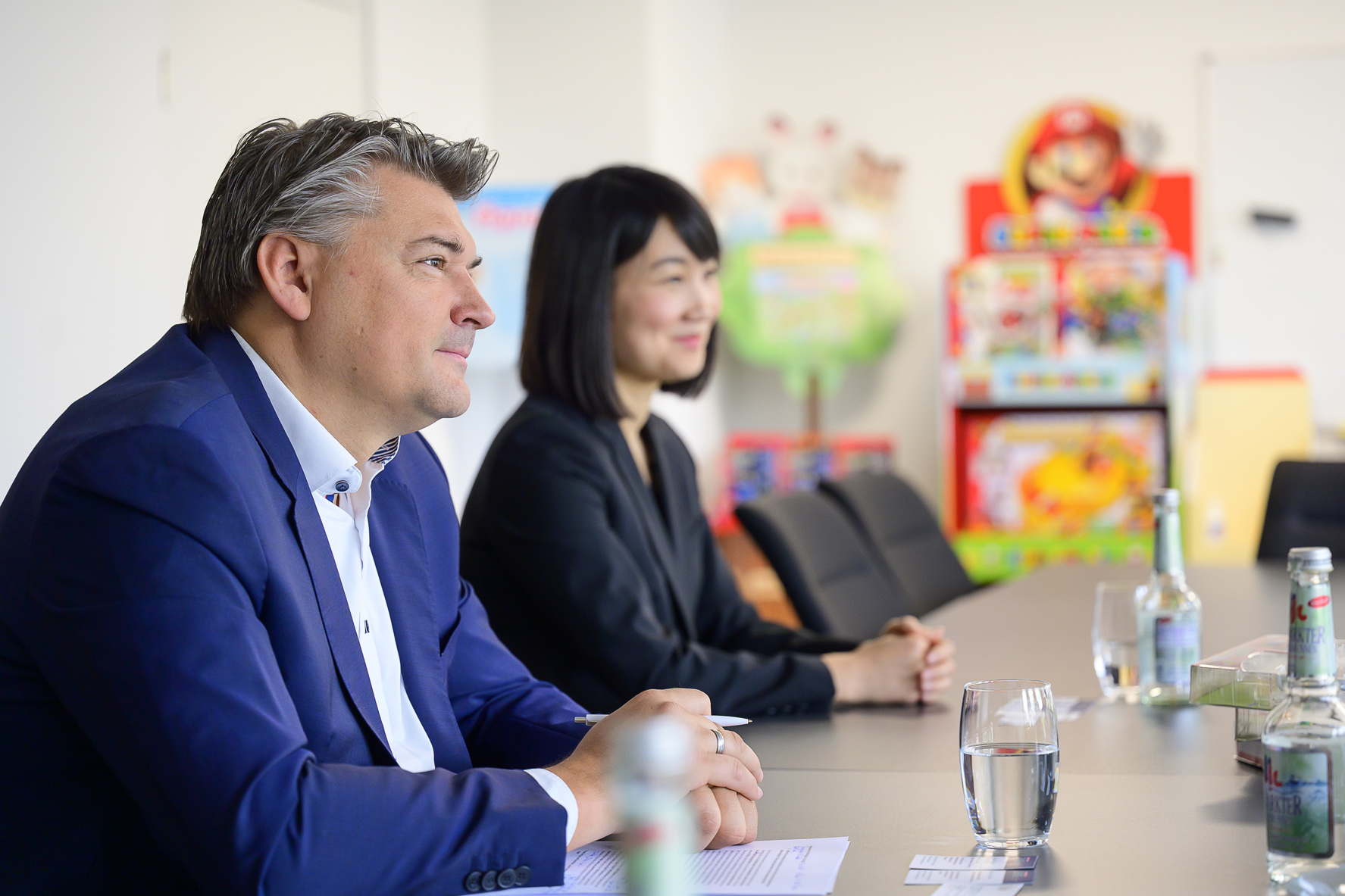
J-BIG: And then what happened next?
Willi Schiffner: We were able to establish more brands, for example the Aquabeads products. These are beads that can be assembled into pictures and figures with the help of water. We developed Aquabeads in 2004 and they are now available in more than 40 countries. Global marketability is one of our demands.
J-BIG: When did EPOCH arrive in Germany?
Willi Schiffner: While sales of Sylvanian Families in France or Great Britain via distributors were already going very well, we were rather underrepresented on the German market in this respect. In 2011, we founded EPOCH Traumwiesen GmbH in Nuremberg with two people in the beginning. For the first three years we concentrated on Sylvanian Families, then Aquabeads were added in 2015 – and then in 2020 we started to distribute Super Mario Games internationally, in Germany a little later, in 2021. In the meantime we have actually already moved into our third office, because the previous locations kept becoming too small.
Free Subscription
“J-BIG – Japan Business in Germany” is the e-mail magazine dedicated to Japanese companies and their business activities in the German market.
J-BIG: EPOCH Traumwiesen GmbH, where does this name come from?
Willi Schiffner: Each EPOCH subsidiary has a different name. This makes it easier to distinguish between the branches, a bit like using first names and surnames. So we are not called EPOCH Germany, EPOCH France, EPOCH Italy, but for example EPOCH d’Enfance in France and EPOCH di Fantasia in Italy. At the time, our first German managing director was given the task of coming up with a name. If the story is true, his parents had a plot of land that they always called “the dream meadow” and he adopted the name for the business.
J-BIG: How come you are based in Nuremberg – the city is not known as a classic location for Japanese companies – like Düsseldorf, Hamburg or Munich?
Willi Schiffner: Our first managing director came from Nuremberg and Nuremberg is also one of the toy centres in Germany. There is a big toy fair here and there are many companies that have been in Nuremberg and the surrounding area for 50 years or more, for example Playmobil or the Simba Dickie Group.
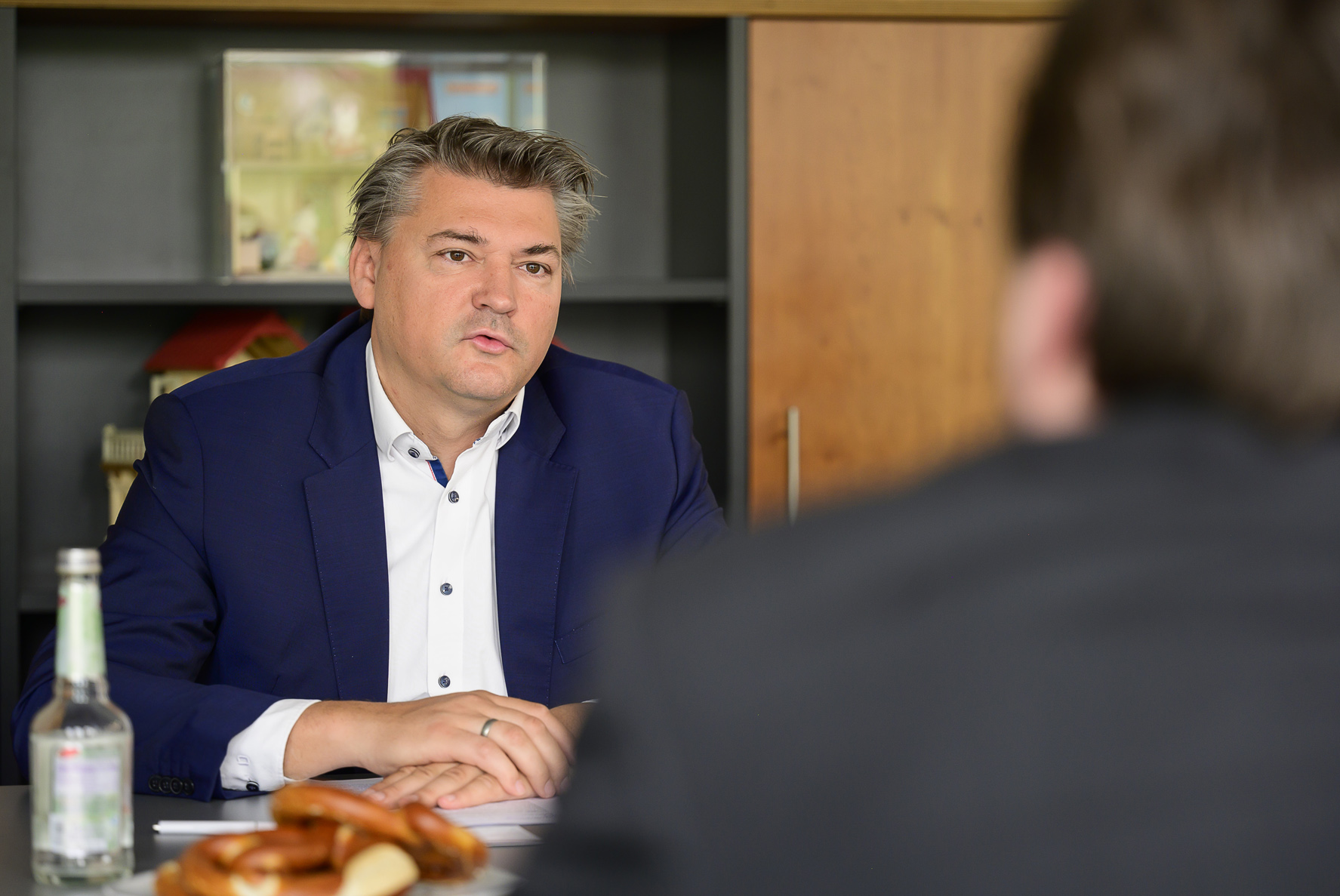
J-BIG: Can you tell us a few facts and figures about EPOCH as a company?
Willi Schiffner: EPOCH has about 3000 employees worldwide. There are about 300 at the Japanese headquarters and about 200 in Europe. We have ten foreign branches – the first we opened in the US in 2008. We have our own factories in China and Laos, where the textiles for our products are also made. In Europe, EPOCH Traumwiesen actually started in Germany and Austria – then we expanded to Scandinavia and most recently to Poland as a start for Eastern Europe. EPOCH Traumwiesen GmbH achieved a turnover in the double-digit millions last year.
J-BIG: How do you distribute your products?
Willi Schiffner: Our three biggest retailers in the DACH region are Amazon, Müller and Smyths. The latter took over Toys “R” Us a few years ago. Corona then recently acted like an accelerator as far as the e-commerce business is concerned. What we had actually predicted for the next five years has now happened in the last two. The e-commerce share in the entire games Toy industry is now well over 50 per cent, while specialist retailers are increasingly struggling.
J-BIG: Besides the change in distribution channels, have you had any special Corona effects?
Willi Schiffner: One trend that increased enormously was the whole area of “Arts and Craft”. Accordingly, we had incredible growth in Aquabeads, in the triple-digit percentage growth range over several weeks. I think this had to do with the fact that the children were at home and the parents were working in their home offices, while at the same time the children had to be kept busy. That means everyone bought a jigsaw puzzle or a game somewhere, or our water beads, and then just said: okay, the children are now busy for 15, 20, 30, maybe even 60 minutes. Unexpectedly high turnover was generated in this phase.
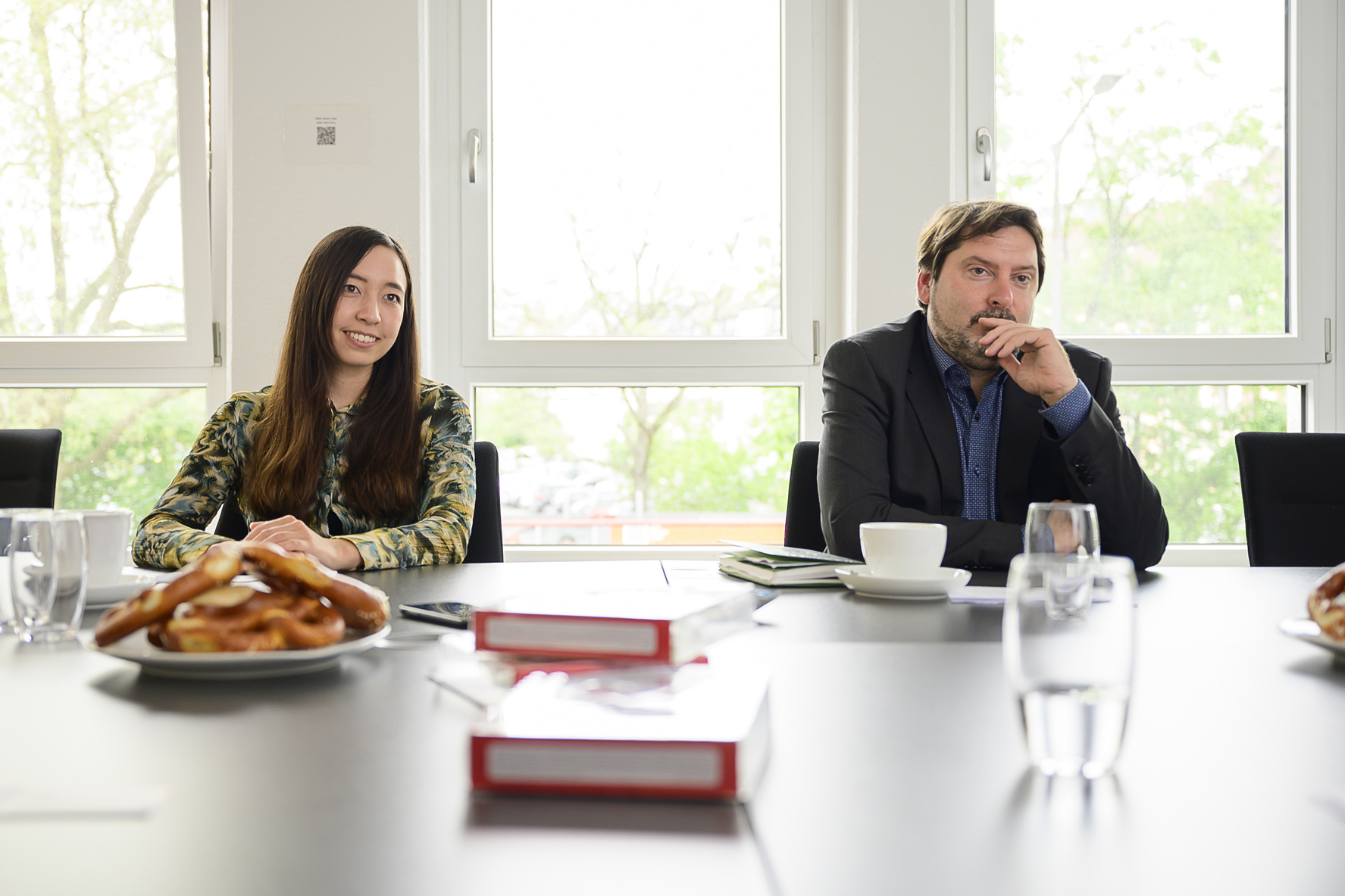
J-BIG: Do characters like the Sylvanian Families actually have products other than the toys? Just as Nintendo licenses the Mario characters to you, you could do the same.
Willi Schiffner: No, not directly. But we are gradually entering the media sector ourselves. There is a Sylvanian Families animated series with short episodes that you can watch on Amazon Prime Video and outside Germany also on Netflix. Since 2018, EPOCH has been producing one season a year.
J-BIG: Which age group does EPOCH address with its products?
Willi Schiffner: We focus on the age group of three to eight years old. For example, a girl who builds a strong connection with a brand like Sylvanian Families when she is three to five years old will still play with our products later on. We need to introduce children to the products before they get their first mobile phone. After that, unfortunately, they are often lost to high-quality toys.
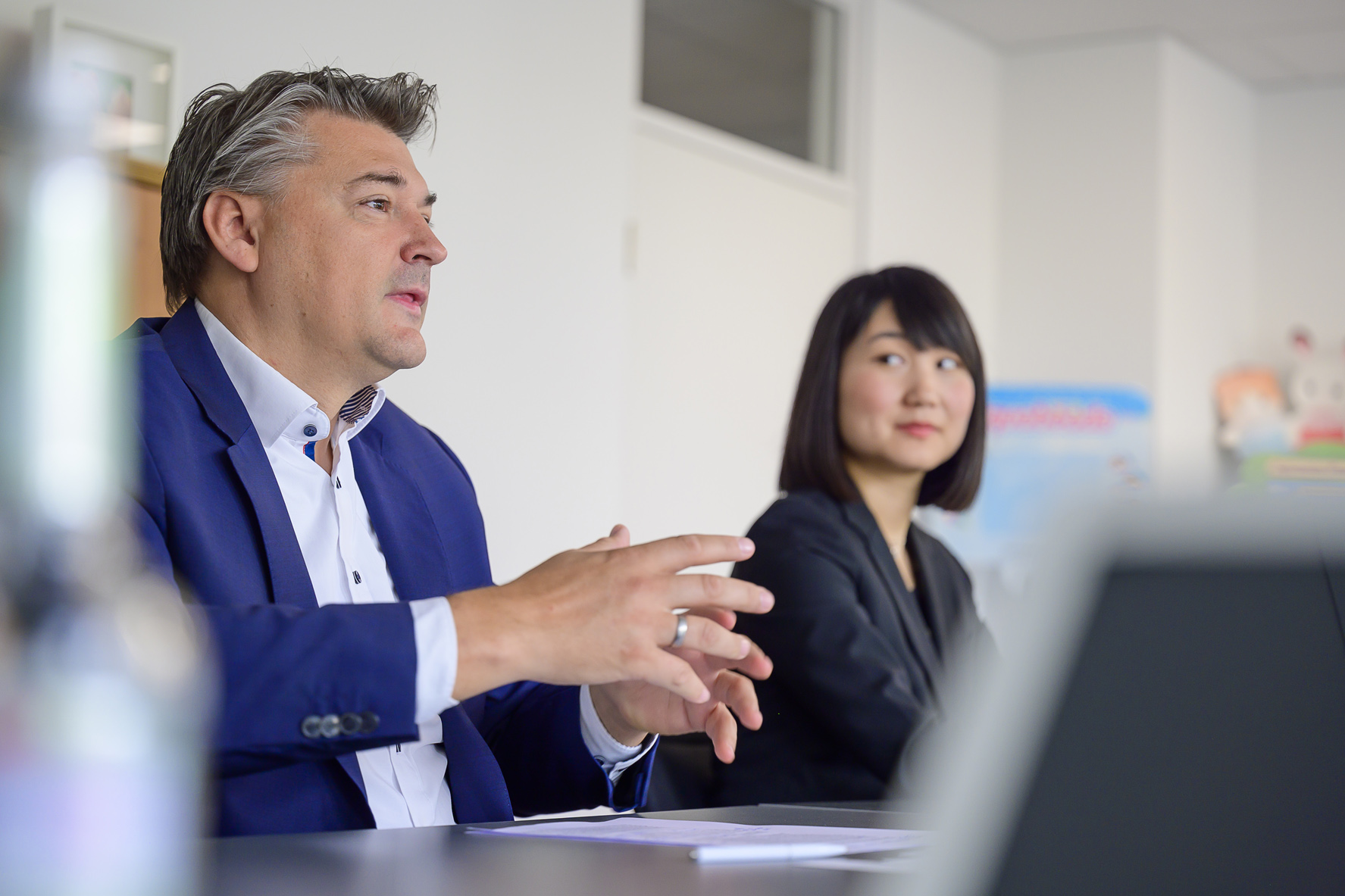
J-BIG: What distinguishes EPOCH from other toy companies?
Willi Schiffner: We are simply timeless. In the toy industry, if you have a product for over 30 years and it ends up on a shelf in the key markets every year, that’s already a very big achievement. There are many products that come and go. Other products experience one relaunch after another to get the next generation excited about the products again. We, on the other hand, launch a brand and really take our time to implement it. Because we want to keep it on the market for the next 10, 20, 30 years or more. We have been selling Sylvanian Families for 37 years now, Super Mario products for 30 and Aquabeads for 18. Our Japanese colleagues and we talk about Evergreen Brands. That is a clear statement and our DNA.
J-BIG: How is your cooperation with Japan organised?
Willi Schiffner: We work directly with the Japanese headquarters. We do have a European central warehouse, but otherwise there is no superstructure such as a European Head Office. In the past, we met personally with the parent company at least three to four times a year, at least once in Japan, at the Toy Fair in Nuremberg and also in another European city, such as Paris or Vienna. Until mid-2021, we had a Japanese colleague who supported us here on site for six years. His successor, who is also Japanese, takes over communication with our contacts in Japan for us. That is very helpful because the culture is simply so different.
J-BIG: What experiences have you had working with Japanese colleagues?
Willi Schiffner: Communication is different, a lot of things are not said directly, but between the lines. When I started here, the first thing they said to me was: “You have to be careful that a yes doesn’t necessarily mean yes and a no doesn’t necessarily mean no.” I didn’t really understand that at first. Then there was a meeting where the Japanese side said yes to a proposal and I then communicated the result directly to my staff. After three or four days, I received an email from Japan saying that the proposal had been discussed internally and approved. Of course I was shocked, because I had assumed that the approval had already been given. Then I realised that a yes can also simply mean that a proposal has been generally understood but still needs to be examined. From a European perspective, we communicate with fewer nuances, and I think that’s something we have to learn in our cooperation.
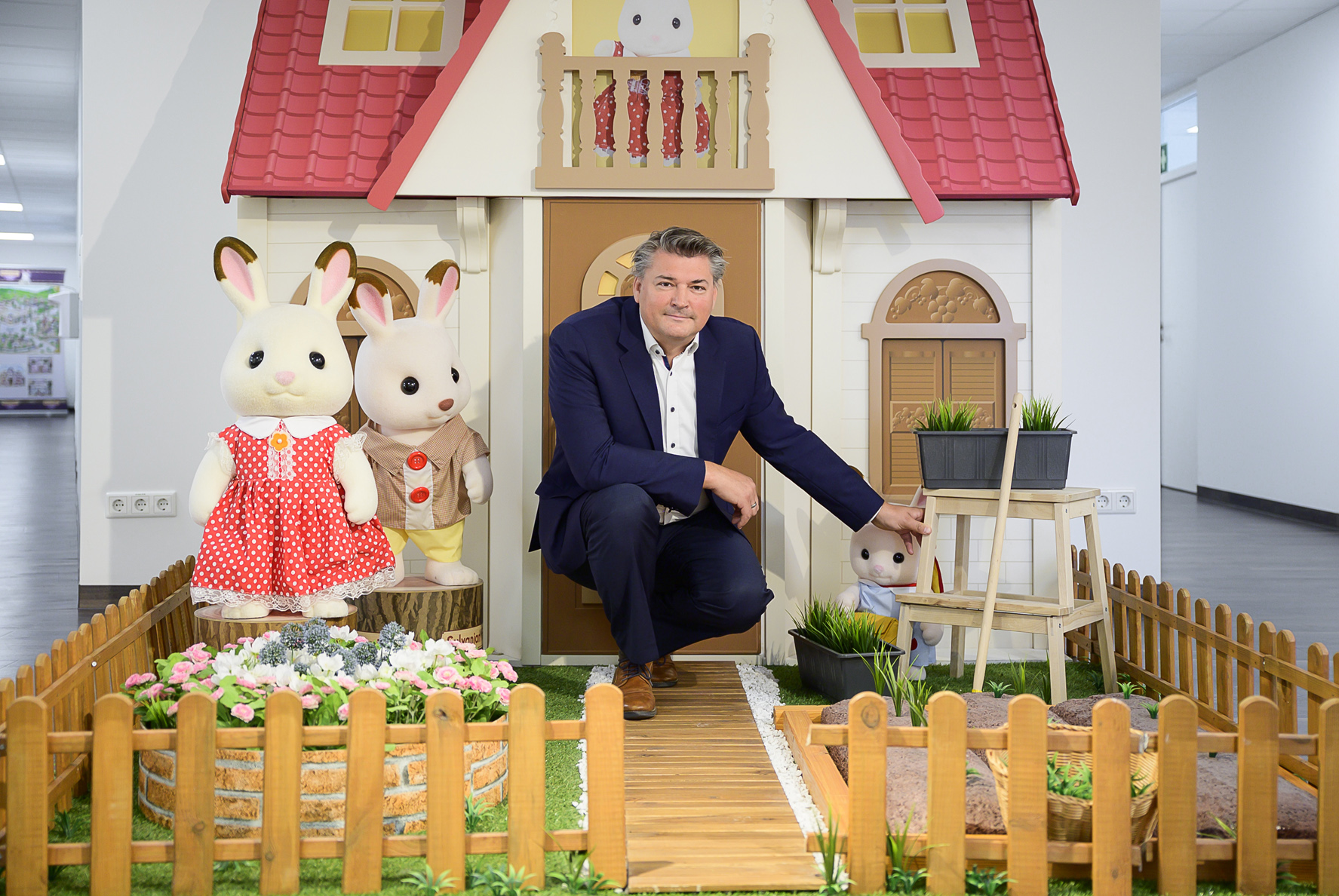
J-BIG: What do you see as a particularly Japanese aspect of the company today?
Willi Schiffner: The quality. We actually never have any complaints. The attention to detail and high quality absolutely sets us apart. From a German point of view, this is sometimes even overdone, but for EPOCH it’s simply a matter of principle: the perfect experience for the children. Attention to detail is also important: for example, with the Super Mario games: you have to have the feeling that the characters come straight out of the video game. And last but not least, product safety is absolutely central.
J-BIG: Where do you want to go in the next few years?
Willi Schiffner: On the one hand, we want to expand into other countries in Europe. On the other hand, we will expand our product portfolio – but with sufficient lead time. The board games sector will be one of the most important sales drivers for us in the future, especially in the DACH region. But in the end, the Japanese headquarters will decide. We are sure that our Japanese HQ still has some exciting products and brands in the pipeline, which we will then also market internationally.



